Top 10 Hardest Languages To Learn in The World
 |
| Top Hardest Languages To Learn in The World |
According to a United Nations report, there are 2750 languages in the world. Every language has a different level of difficulty and no language is easy to learn. There are four main factors that determine the difficulty of a language: grammar, vocabulary, writing system, and language. Sometimes it also depends on the distance between the mother tongue and the languages. For example, the Chinese may not think that Japanese is too difficult to learn. However, other countries around the world find Japanese the most difficult to learn.
In this article, KnowInsiders.com will introduce to readers the top 10 most difficult languages to learn in the world.
| Table of content |
1. Mandarin
 |
| Mandarin |
Surprisingly, the most difficult language to learn is also the most frequently spoken native language on the planet. Mandarin Chinese is difficult to learn for a variety of reasons. First and foremost, English speakers (and anybody else accustomed to the Latin alphabet) will find the writing method incredibly challenging. In addition to the regular difficulties that come with learning any language from beginning, Mandarin students must memorize thousands of peculiar characters, which is unlike anything found in Latin-based languages.
Yet writing isn't the only challenging aspect of learning Mandarin. The tonal character of the language also makes it difficult to speak. Cantonese, a Chinese dialect spoken predominantly in southeastern China, as well as Hong Kong and other regions of Southeast Asia, has various written characters and pronunciations and is also exceedingly difficult to master. Because Mandarin Chinese (the most popular dialect) contains four tones, a same word can be pronounced four distinct ways, each with a different meaning. The word ma, for example, may signify "mother," "horse," "rough," or "scold" depending on how you speak it.
2. Hungarian
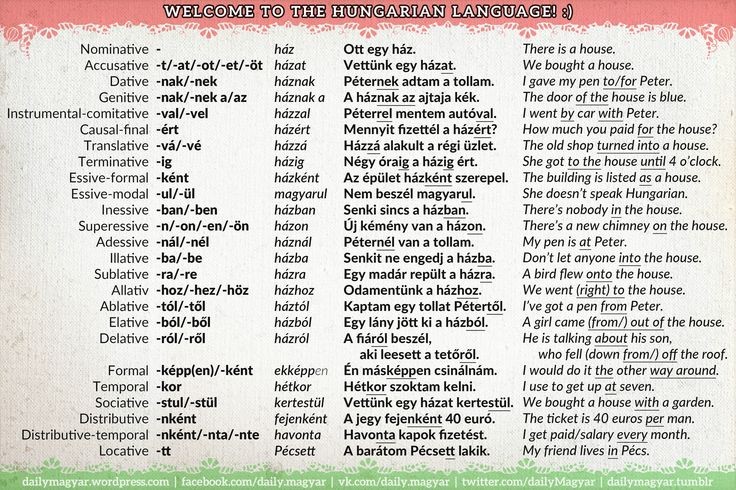 |
| Hungarian |
Hungarian is especially tough for English learners since words are created in such a variety of ways, with phrases sometimes joined to produce a single word. For example, barátnmmel means "with my female buddy". In Hungarian, there are 18 case suffixes. English, on the other hand, has only three yet nevertheless manages to perplex with its intricacies. When one considers the intricate grammatical rules and cultural nuances, it is clear that Hungarian is not an easy language to learn.
3. Finnish
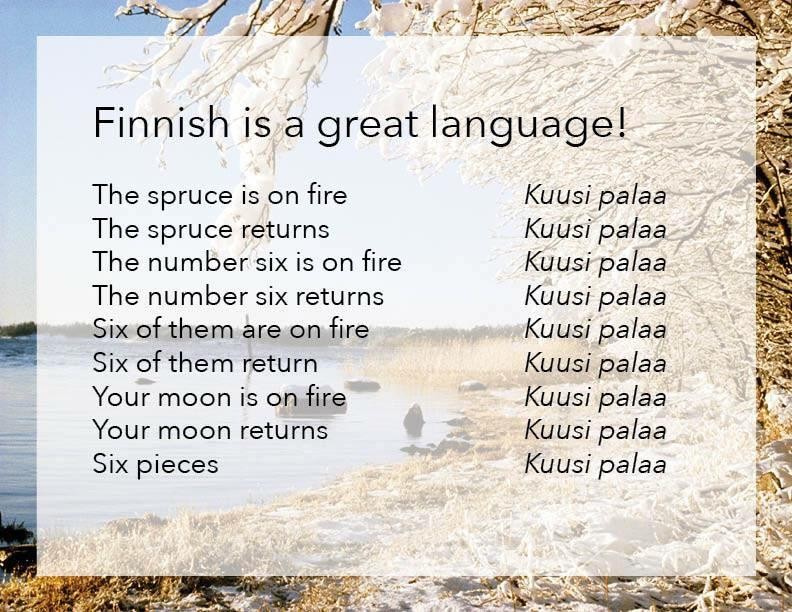 |
| Finnish |
The Finnish language has the most difficult grammar behind Hungarian. Because of its pronunciation and letters, it sounds and looks similar to English.
Nonetheless, the grammar makes it significantly more difficult than the English language. Then there's classical or traditional Finnish, which is more difficult to master.
Contemporary Finns express themselves in a very different way than the rest of the world. That is why it is one of the top ten most difficult languages to learn. If you want to study Finnish, prepare to be lost in a jungle of grammar!
4. Arabic
 |
| Arabic |
With over 300 million speakers, Arabic is one of the top five most spoken languages in the world. Studying Arabic will introduce you to the rich and diverse Arab culture and offer up new employment prospects, not to mention the sense of accomplishment that comes with learning one of the world's most challenging languages.
Arabic is regarded as one of the most difficult languages for English speakers to learn, not only because there are approximately 20 ways to say hello in Arabic, but also because the Arabic language has complex grammar rules and pronunciation with complex sounds that English speakers are completely unfamiliar with.
5. Japanese
 |
| Japanese |
Japanese is another challenging language for individuals who have grown up learning English, Spanish, or French, but it may be simple for those who are fluent in East Asian languages. Japanese, a language with no plural, is native to the people of Japan, who take great pleasure in their language and go to great measures to promote it! Because of its sentence structure, thousands of kanji characters, and dozens of dialects, Japanese is a challenging language! Thus, Japanese tutors have become sought afer by many aspring learners seeking proficiency in this challenging language.
6. Russian
 |
| Russian |
Russian is a fantastic language to learn, with 154 million native speakers and 104 million non-native speakers, and will introduce you to a fascinating world of literature, philosophy, and visual arts.
Russian, like a Slavic language, contains several words with consonants clustered together, as do Ukrainian, Polish, and Serbian. For English speakers, this might make Russian pronunciation difficult. Another thing that might be perplexing for English speakers is that while some Russian characters are similar to Latin letters, others appear identical but sound different. For example, "B" is pronounced "V," "H" is pronounced "N," and "P" is pronounced "R." Still perplexed?
7. Hindi
 |
| Hindi |
Hindi is a phonetic language descended from the ancient South Asian language of Sanskrit, although many sounds are unfamiliar to English speakers. Meanwhile, the written version of Hindi, written in Devanagari script, lacks essential phonetic markers that would aid students in understanding how to pronounce words.
The extremely nuanced language includes minute variations in tone and context.
8. Vietnamese
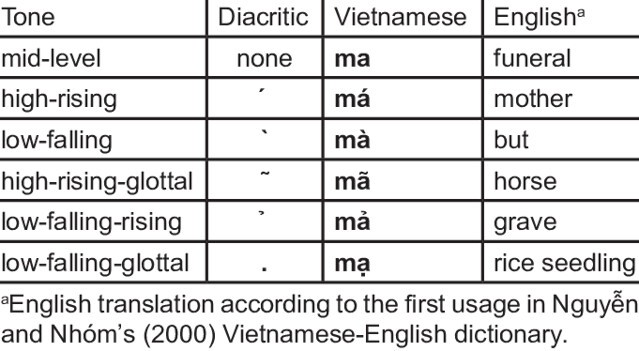 |
| Vietnamese |
The Austroasiatic language family includes Vietnamese. It is the national language of Vietnam and the mother tongue of over 76 million people. If you want to travel through or reside in Vietnam for an extended amount of time, learning Vietnamese might be beneficial. This is especially true if you want to go outside of major towns and famous tourist locations where English is more likely to be understood.
Because of its complex pronunciation, Vietnamese might be challenging for English speakers. It contains six different tonal variants that are indicated by diacritics. Because intonation modifies the meaning of the context and some vowels may be combined to generate new sounds, you'll need to spend a significant amount of time listening to and practicing Vietnamese before you can make yourself heard.
However, practice makes perfect, and after you've gotten acclimated to the various tones, Vietnamese grammar is actually fairly simple.
9. Thai
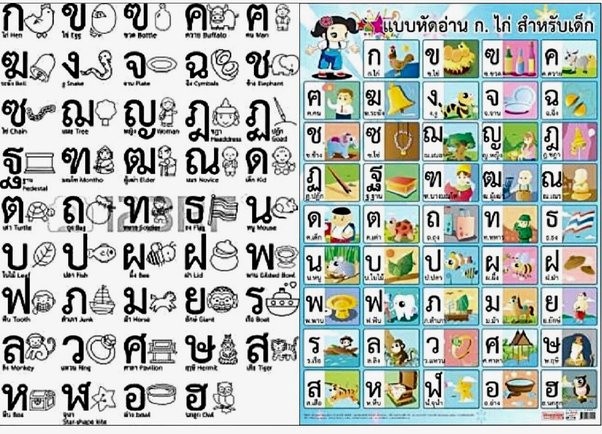 |
| Thai |
If you want to live, work, or vacation in Thailand, learning Thai is most certainly high on your priority list. Nevertheless, you may be asking, is Thai difficult to learn?
Thai is a difficult language to learn, especially if you speak English. This is due to the fact that Thai, like Mandarin, Cantonese, and Vietnamese, is a tonal language with five tones. This implies that students must be able to discriminate between five different tones and accurately pronounce each tone in order to comprehend the language and be understood by other Thai speakers.
Thai also has its own alphabet, which has 44 consonants, 18 vowels, and 6 diphthongs that must all be mastered in order to understand the Thai language. On the other side, after you've mastered these tough aspects, Thai grammar is rather simple to learn, and the vocabulary includes several English loan words.
10. Icelandic
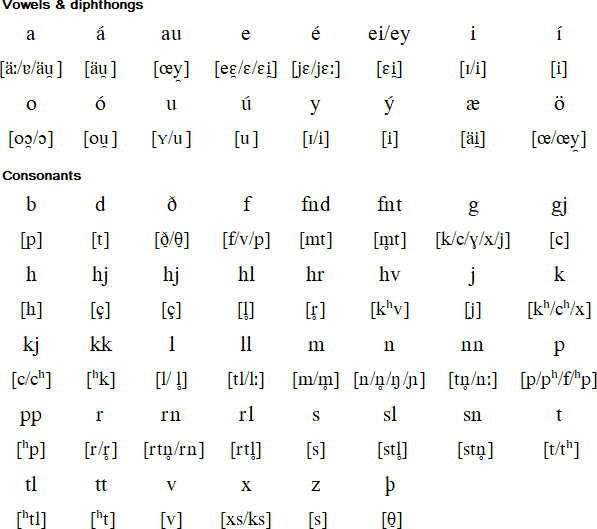 |
| Icelandic |
Icelandic is spoken by less than 400,000 people on one island, and the language has remained substantially intact since Iceland was established in the ninth century. Yet, medieval Icelandic sagas are still clearly accessible to practically any current speaker.
Rather of using foreign terms to describe new concepts, Iceland invents new words — neologisms — to give new meaning to old ones. The 'computer,' or tölva, is an excellent illustration of this:
Tölva = tala ‘number’ + völva ‘seeress’ + sími ‘telephone’ + a revival of a disused word that meant ‘thread’
Despite being an island with little outside impact on its own language, Icelandic has influenced English, lending the 'th' sound to words like 'three' and 'thinking'. Hence there is one sound language that students do not need to learn from beginning.
Together with medieval language and neologisms, Icelandic grammar is likely the most difficult part for English speakers to comprehend. Learning Icelandic is difficult since fluency requires you to be in Iceland and use local resources.
Conclusion
Usually it takes 10-12 months to learn a new language. Depending on the language, there will be a certain time to learn and master. But it won't take long if you focus, aim and spend a lot of time in that language.
We have just compiled the top 10 most difficult languages in the world. Hopefully, through this article, we has provided you with useful information.
 Top 30+ Weirdest and Rarest Words In English Language Top 30+ Weirdest and Rarest Words In English Language While reading books, have you ever encountered rare words tat you don’t know the meaning? This can happen to anyone especially non-native speakers. This article ... |
 How To Say Hello and Goodbye In Qatar Language How To Say Hello and Goodbye In Qatar Language Learning a few Arabic words and phrases can demonstrate your interest in the country and its language, and may help you to integrate more easily. ... |
 Which Language Does ChatGPT Support Best? Which Language Does ChatGPT Support Best? ChatGPT has lots of applications that make life easier and help you earn money. One of its biggest strengths is being multilingual. Check out how ... |























